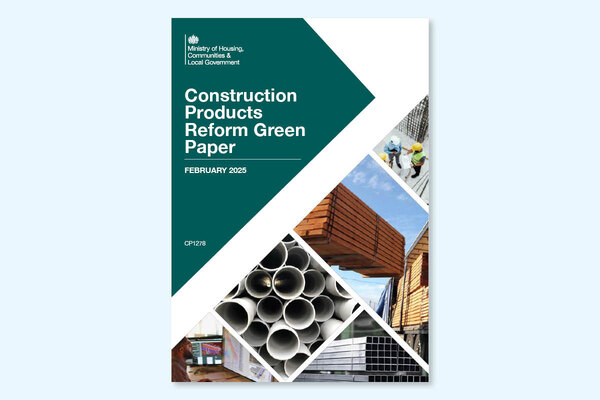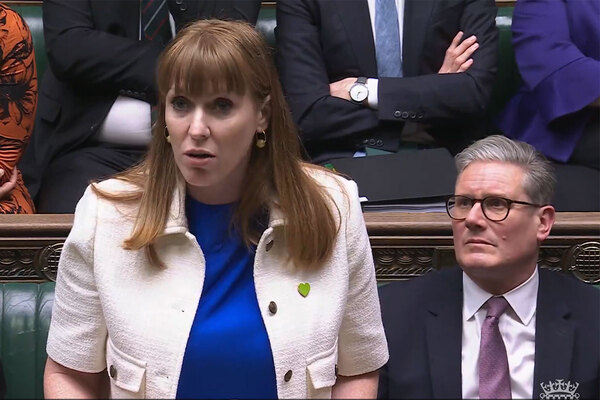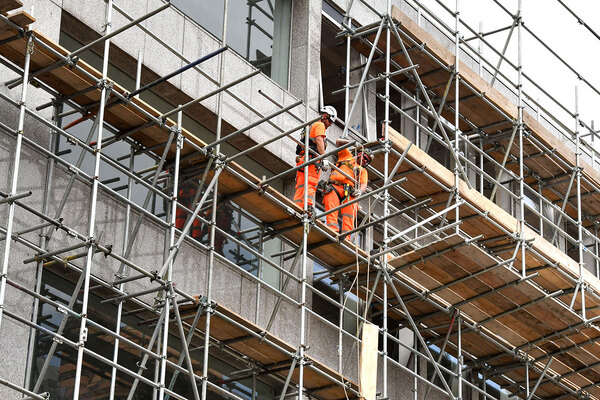CPD webinar on demand: the importance of good quality data to good air quality
As part of Inside Housing’s CPD offering, watch the full webinar at the end of this article in association with Aico, ‘The importance of good quality data to good air quality’, and earn CPD minutes
In association with:


Good indoor air quality is important to a safe and suitable home, and so an important area for social landlords to consider. While it is possible to map the UK from the perspective of air outdoors – even linking it to health and population data – there is little widely available data on air inside buildings. Once residential properties are completed, there tends to be little continuing assessment of indoor air quality aside from urgent safety issues such as carbon monoxide.
In this CPD webinar, Professor Tim Sharpe, head of the department of architecture at the University of Strathclyde, joins Katharine Swindells, deputy features editor at Inside Housing. They explore which data is most valuable in assessing indoor air quality, consider relevant parameters when analysing such data, and touch on how social landlords can deepen their knowledge of this area.
Learning objectives
By the end of the webinar, those attending will:
- Understand what indoor air quality is and why it is important
- Describe the key indicators in assessing indoor air quality
- Detail how data can be gathered for each of those key indicators
- Know the figures which indicate good air quality in a home
- Understand traditional challenges in monitoring indoor air quality
- Be able to describe some means by which they may be overcome
Now get your CPD minutes
In order to gain your CPD minutes, you must register by clicking the link below and watch the entire 45-minute webinar.
Once you have watched, you will receive a certificate confirming the award of your CPD minutes within 10 working days via email.
Watch the webinar by clicking here
Inside Housing CPD content archive
Find out more about Inside Housing’s CPD offering by clicking here
Fostering data-driven engagement with residents on fuel poverty
Watch the full webinar at the end of this article in association with Switchee, Fostering data-driven engagement with residents on fuel poverty
How have fire safety regulations changed and how can providers remain compliant?
Recent legislation aims to improve fire safety in buildings by increasing accountability and improving fire risk assessments. Andy Frankum, chair of the National Social Housing Fire Strategy Group, explains more
Tenancy fraud – how to spot it and how to fight it
Stephanie Toghill of Islington Council and vice-chair of the Tenancy Fraud Forum explains what tenancy fraud is, how it occurs and how to tackle it
How landlords should deal with TSMs, one year on
Tenant satisfaction measures were brought in by the regulator last year and assess whether landlords are providing quality homes and services to tenants. Tim Quinlan at Riverside explains how it has adjusted to the changes
The importance of good quality data to good air quality
Watch the full webinar, The importance of good quality data to good air quality
Making data-led decisions in social housing
How data is stored and used is crucial for decision-making across the social housing sector. Dr Laura Wales, head of data at Raven Housing Trust, explains why
Building reciprocal relationships with residents
Reciprocity is essential for social landlords to build successful relationships with residents. Anna de Souza and Ingrid Smith at Peabody explain how to go about it
How can social landlords assess whether retrofit is delivering intended performance improvements?
Watch the full webinar, How can social landlords assess whether retrofit is delivering intended performance improvements?
How social landlords should assess and report performance on ESG
Social landlords are increasingly expected not only to consider their environmental and social impact, but also to demonstrate it. Andy Smith, head of impact services at The Good Economy, outlines what providers need to consider
Designing new builds with indoor air quality in mind
Could the drive for energy efficiency in new builds be at the expense of indoor air quality? Dr Jenny Brierley, former housing association chief executive and indoor air quality researcher, explains
AI and robotic process automation – how to use them in social housing
Artificial intelligence and robotic process automation could transform the way social landlords operate and create efficiencies. Monica Quintero, head of digital at Stockport Homes Group, explains the benefits and pitfalls
How to approach decarbonisation policy and strategies
The policy environment on decarbonisation and retrofit is evolving, so how can social landlords continue to build strategies to meet net zero? Richard Ellis, director of sustainability at Peabody, explains
Addressing the development gap in social housing
There is a significant gap between the social housing available in the UK and the number of people who need it. Vicky Savage, executive group director for development and sales at L&Q, looks at the ways in which social landlords can support and increase further development
The importance of indoor air quality
What is indoor air quality, why is it important, and how can it be improved in social housing? Professor Tim Sharpe, head of the department of architecture at the University of Strathclyde, explains
The Procurement Act 2023 – how will it affect landlords?
The Procurement Act 2023 passed into law at the end of last year, with full implementation set for October 2024. How does it change procurement processes, what stays the same and how should social landlords adapt? John Wallace, director of procurement at Clarion, explains all
Funding options in social housing
What does the current finance environment look like in the social housing sector, and what are the different options? Arun Poobalasingam, funding and marketing director at affordable housing aggregator The Housing Finance Corporation, explains more
The new building safety regime
Why has the new building safety regime been introduced, what is different, and what do social landlords need to do to ensure compliance? Andrew Moore, head of operations for building control and planning service at the Building Safety Regulator, explains
The recruitment and retention challenge in repairs and maintenance
The social housing sector faces a challenge in recruiting and retaining repairs and maintenance staff. Mark Coogan, Liz O’Connor, Paul Longman, Russell Thompson and Mike Wilson explore the causes and some potential solutions
Co-production
What is co-production, how can it be fostered, and what are the potential benefits of getting it right? Learn how the concept can be applied successfully to social housing
Psychologically informed environments
How psychologically informed environments take into account how previous trauma might impact people who have experienced homelessness and how they interact with support services
Understanding damp and mould
Housing ombudsman Richard Blakeway discusses how social landlords can tackle the problem of damp and mould in their homes
Tenant satisfaction measures
Watch the full webinar How to collect, report and act on tenant satisfaction measures











